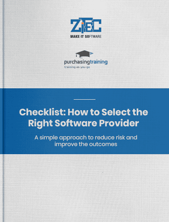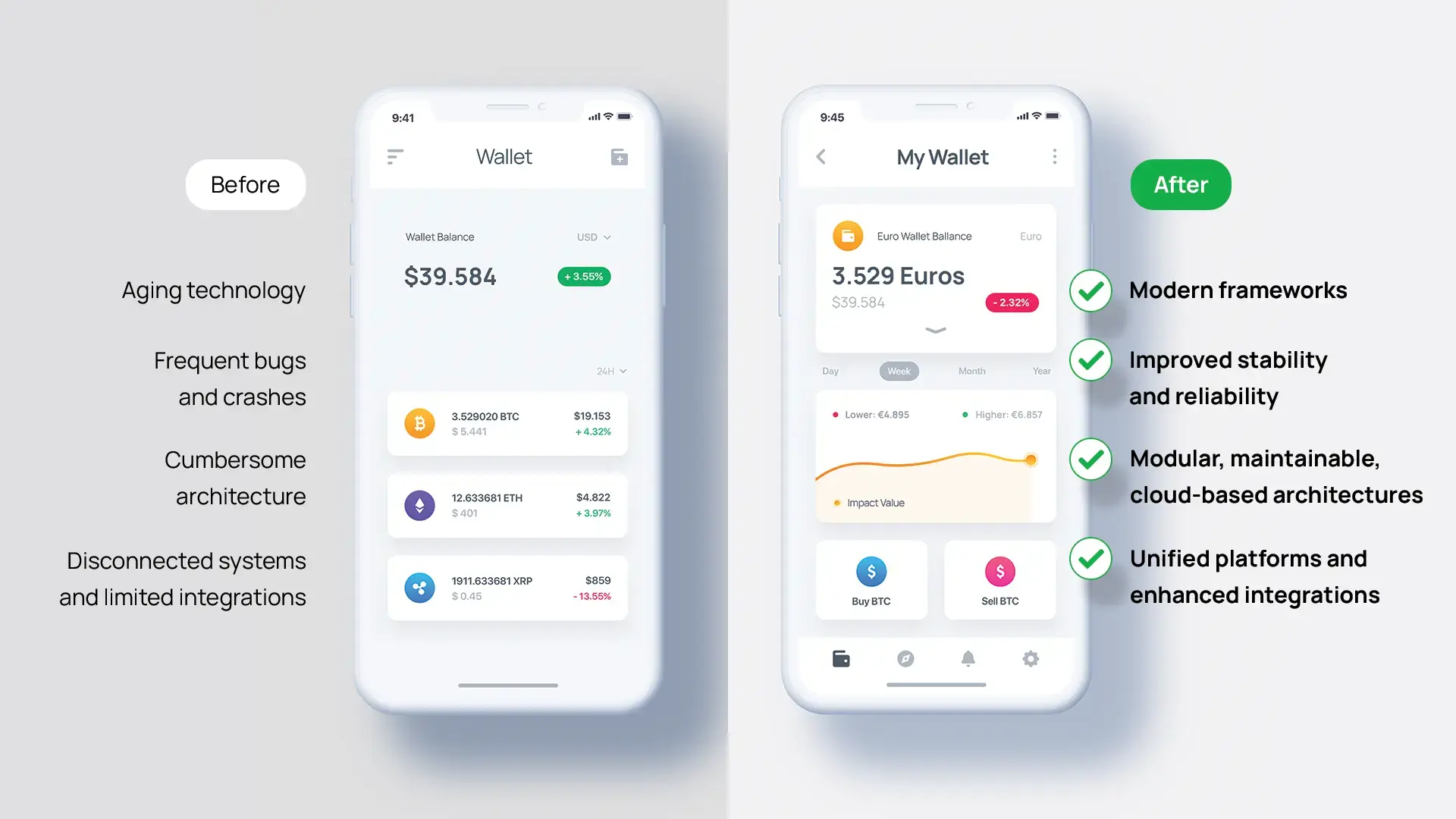Partnering with specialized companies that help you improve customer experience, optimize business processes or refine business models proves beneficial in many respects. Whether you’re a startup or a big enterprise, experienced custom software development companies come with the technical knowledge and expertise that boost your ability to innovate, optimize costs, and sustain healthy business growth.
However, choosing the right IT provider is a complex task, especially when considering industry-specific requirements and challenges, and also keeping up with IT&C technological advancements. Additionally, legal implications can pose another set of challenges in the IT supplier selection process, being one of the first things to consider when deciding to enter a long-term partnership with a software development company.
Although often disregarded, in this article you’ll learn why analyzing legal implications in choosing an IT partner should be in your top 3 priorities the least.
LEGAL IMPLICATIONS
In safe and successful outsourcing collaborations, all stakeholders must be aware of their contractual obligations and confidentiality agreements. If you’re looking for a long-term partnership with a custom software development company, bear in mind the legal implications of the outsourcing business model. Moreover, pay attention to how various legal factors differ by country or region, and how they can really make a difference.
In certain regions, you might find more favorable tax policies or even fiscal incentives. For example, in Romania, there’s a 0% income tax for employees working in IT&C companies, in compliance with the current legislation, while personal income tax rates were recently lowered to 10%, making the country very tax-friendly to individuals as well as businesses seeking an offshore company alternative.
Here’s how to navigate the legal and contractual components of an outsourcing collaboration:
1. Request a Non-Disclosure Agreement
Software development projects usually imply the storage, usage, and handling of personal or sensitive data, besides information about the project, company, stakeholders, or third parties. This is why software development companies frequently require access to different types of data, and, to build confidence, all the exchanged information should be kept confidential. In this case, you need to request a non-disclosure agreement (NDA) from your future IT partner to protect sensitive information during the discovery phase.
Established companies already have data protection protocols in place so if you see any vendor hesitant in signing an NDA, you should look for another one.
2. Check Security & Compliance Policies
In modern business, data is paramount, so make sure you check if your potential IT partner has policies in place that comply with data protection standards and regulations like GDPR. This way, you can prevent issues and maximize your software’s lifecycle while ensuring the required compliance levels. You can take a step further and inquire about information security training and certifications within the company, partnerships with industry associations, or a Code of Conduct.
- ISO certifications, like 9001 and 27001, guarantee the quality of the delivered services, ensuring security, efficiency, quality, and productivity throughout the entire collaboration;
- GDPR principles maintain the integrity and confidentiality of the data you collect, essentially keeping it secure from internal or external threats;
- Corporate compliance is an important and effective method to ensure a business follows all applicable laws and regulations (e.g. anti-money laundering policy, technology use policy, the due diligence procedure, etc.)
- CREST & NIS accreditations: the NIS security auditor certification allows IT partners to conduct cybersecurity audits and guarantee the security of networks and IT systems while the CREST accreditation confirms that their pentesting services and security audits are performed at the highest quality standards;
- Partnerships with reputable IT companies and affiliation with professional associations and organizations are proof of the level of quality and professionalism;
- A Code of Ethics/Conduct clarifies an organization’s mission, values, and principles, linking them with standards of professional conduct.
3. Define Intellectual Property (IP) Ownership
Fruitful software development partnerships often result in new intellectual property, so it’s important to determine who owns the rights to any assets created during the collaboration. In some cases, one of the two partners may hold all of the IP, which requires signing a license agreement in advance by one of the parties. Joint ownership is also possible, in which case both parties need to agree to share the IP for a certain period. When a contract is terminated, this can help avoid unnecessary tension and arguments.
Additionally, remember that you can always check valuable information about your potential IT partner on the number and type of projects the company has successfully delivered, client references, or reviews on the Clutch or GoodFirms company listings.
Selecting your IT partner is no easy task, especially when considering legal implications, but once you’ve managed to navigate all the above legal and contractual components of an outsourcing collaboration, you can ensure a successful partnership.
WHY CHOOSE ZITEC AS YOUR IT PARTNER
We’re a team of 200+ technology experts and 100+ certified specialists with almost 2 decades of experience in custom software solutions, eCommerce products, cloud computing, and digital marketing services for hundreds of clients worldwide. For them, we leverage our global partnerships with Google, Microsoft, VTEX, Facebook, or Adobe to build custom, end-to-end business solutions and empower their digital transformation journey. Recently, we’ve received the CREST and NIS Security Auditor accreditations.
At Zitec, we employ Agile methodologies in the software development lifecycle and cover all aspects of a project, from ideation to implementation, scale, and continuous improvement. Our teams have a strong focus on informed technology management, which allows us to constantly explore, test, and integrate new technologies.
 Now that we’ve discussed the importance of legal considerations in the IT partner selection process, we encourage you to download this eBook, as it covers many other valuable insights about all the things you need to take into account when searching for a potential IT supplier.
Now that we’ve discussed the importance of legal considerations in the IT partner selection process, we encourage you to download this eBook, as it covers many other valuable insights about all the things you need to take into account when searching for a potential IT supplier.
We’re always open to discussing your ideas or projects, so if you have any questions, feel free to get in touch any time.



.webp)

